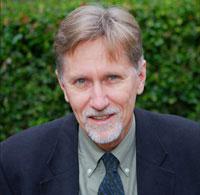My work focuses on the history and theory of rhetoric and especially on the relation between rhetoric and philosophy, but I am also interested in rhetoric’s other dimensions: its close connection with processes of democratization, ancient and modern; its potential for serving as the core of a liberal arts curriculum; its power to inform the teaching of communication, especially the teaching of writing; its ability to describe how people reason and persuade one another in conditions of uncertainty without resorting to threats or violence; its vast resources for comprehending how poetic language works; and its ability to generate ideals for education and human development. My first book, The Rhetoric of Reason, developed a rhetorical framework for understanding reason as communication, and it used that framework to re-think the teaching of writing in colleges and universities. My latest book, Deep Rhetoric, focuses on the very idea of rhetoric, and builds a case for understanding rhetoric as a philosophical enterprise that is linked to the practical project of defeating violence and seeking wisdom by developing robust rhetorical capabilities in individuals and conditions of communicative justice in societies. In addition to my central interest in rhetoric, I am also interested in non-fiction writing about nature and especially in the different ways “nature” comes to presence in different forms of writing and through different media. Here, I have a central concern with the idea of wilderness, something I am inclined to defend. I am also interested in literary theory in a more general way and in the place of rhetoric in that larger critical enterprise. Finally, I have recently found myself reading more and more poetry, and that is surely leading somewhere. Recent Presentations2019. July 25. “The New Rhetoric, Humanism, and Posthumanist Challenges.” Meeting of the International Society for the History of Rhetoric. New Orleans, Louisiana.2018. June 3. “Deep Rhetoric, Rhetorical Humanism, Wonder.” Meeting of the Rhetoric Society of America, Minneapolis, Minnesota.2018. June 1. Invited. “Fifty Years of Philosophy and Rhetoric: (Re)Inventing in Relation.” Meeting of the Rhetoric Society of America, Minneapolis, Minnesota.2017. “Rhetorical Formation and Destituent Power.” 2017 Conference on Rhetorical Theory. Columbia, South Carolina. October 12-14.2017. March 18. “A Vision of a New Textbook Model.” Conference on College Composition and Communication. Portland, Oregon.2016. May 29. “Rhetorical Humanism and Posthumanism.” Special Panel on “Rhetorical Theory after Heidegger.” Meeting of the Rhetoric Society of America. Atlanta, Georgia.2016. March 3. “Demagoguery, Deliberation, and Democratic Hope.” Landmark Address on Rhetoric and Writing. San Diego State University.2015. July 31. “Rhetoric, Argumentation, and Human Development.” Meeting of the International Society for the History of Rhetoric. University of Tübingen, Germany. Recent Publications2013. Deep Rhetoric: Philosophy, Reason, Violence, Justice, Wisdom. University of Chicago Press (424 pages).2019. “A Fluid Ideal: Dialectical Virtues and The Possibility of Debate.” Philosophy and Rhetoric 52:1, 56-62.2019. "Inertia in Argumentation: Nature and Reason." In: Presumptions and Burdens of Proof. Ed. by Hans V. Hansen, James Freeman, and Lilian Bermejo Luque. Series in Rhetoric, Law, and the Humanities. University of Alabama Press, 142-155.2018. “Toward Truth.” Philosophy and Rhetoric 51:4, 368-91.2015. Reading, Reasoning, and Writing. New edition. Booklet published as a textbook for use in University of Oregon Composition courses. 2015. “The Point is to Change It.” In Toward a Critical Rhetoric on the Israel-Palestine Conflict. Ed. By Matthew Abraham. Parlor Press, 175-185.2013. “The Rhetorical Unconscious of Argumentation Theory: Toward a Deep Rhetoric.” Philosophy and Rhetoric 46:4, 392-414.2013. “Argument in China: Commentary on Yun Xie, Shuying Shi, Sarah Evans, and Dale Hample's ‘Exploring the meaning of argument in China.’” Proceedings of the Conference of the Ontario Society for the Study of Argumentation.2013. “Dissociative Capabilities: Commentary on Victor Ferry’s ‘The Virtues of Dissoi Logoi.’” Proceedings of the Conference of the Ontario Society for the Study of Argumentation.2011. “Rhetoric, Equity, Freedom.” (Translated into Chinese by Qiao Qian as 论修辞、公平与自由.) Journal of Peking University (Philosophy and Social Sciences) 48:5, 74-77.
Back to Top


